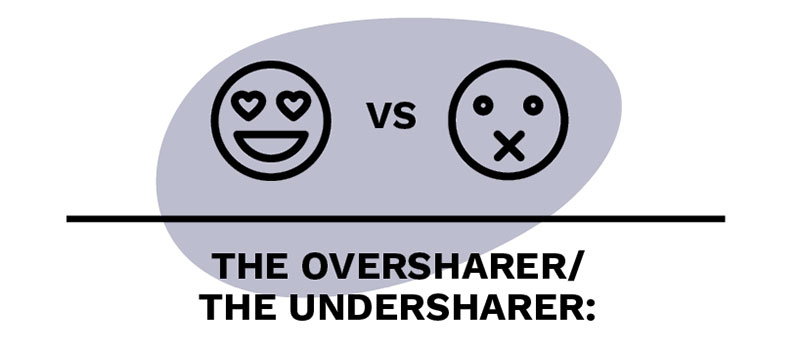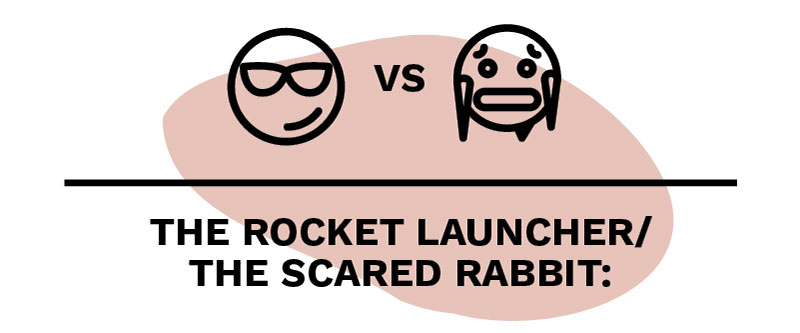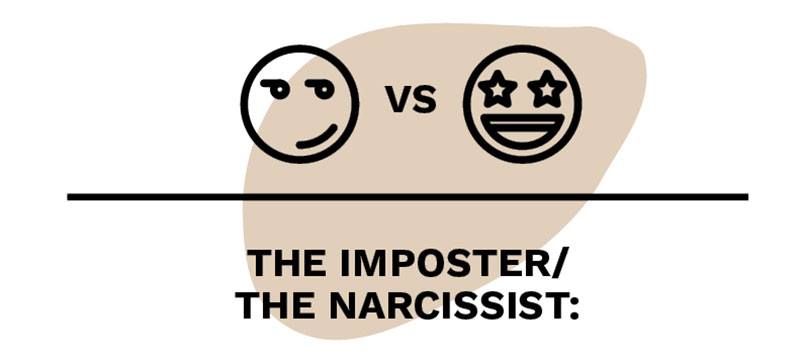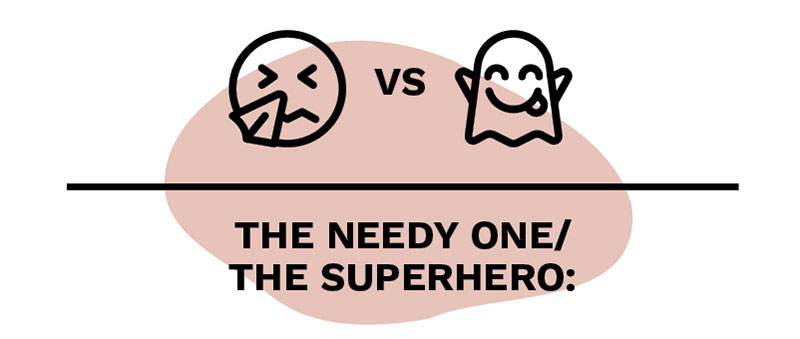The archetypes of the screaming team leader, the oversharing colleague, or the coworker who never looks people in the eye are so common that entire sections of the internet are reserved for memes and GIFs on the subject. Even Tik Tok has gotten in on the action with videos that show overreactions in the workplace – usually resulting in a computer being thrown on the floor or an over-the-top tirade.
Emotions are not your enemy, but they can definitely land you in hot water at work. Emotions fuel your decisions and reactions, and they have a powerful impact on how you and everyone else conducts themselves in the workplace.
Feelings can’t remain bottled up – they need a way out. If feelings are not expressed, they are repressed and held back. They churn and creep into your interactions, creating pressure that builds and grows until the point of an uncontrolled explosion of emotions.
Identifying your emotions and understanding their origins will help you deal with them professionally and respectfully. Emotional Intelligence (EI) skills not only help improve how you feel at work and about your work, but they also help improve how you perform at work.
Below are some of the more problematic manifestations of emotions in the workplace. If you find that you’re behaving in any of the following ways, I have provided tips to build your Emotional Intelligence and help you tame those unhelpful behaviors.
The Oversharer/The Undersharer
Oversharing and undersharing both cause issues in the workplace. The oversharer usually means well but is too expressive with their emotions. They share TMI (too much information) to build relationships, often prematurely, without a sufficient level of trust. This can make colleagues uncomfortable and make others feel awkward because it puts pressure on them to share personal details too early in the relationship.
Undersharers have low emotional expression; they often appear withdrawn and a bit of a mystery because they don’t share enough. Usually, their cautious approach can be misinterpreted as though they are coyly hiding or omitting information. Alternatively, undersharers may keep their emotions bottled up and have a short fuse. They may release their feelings by yelling and swearing because they have no other outlet for their emotions.
What to do About it (Ei Tip):
- If you are an oversharer, set some boundaries. Boundaries are the limits you create for yourself, which help you determine what is appropriate to share versus inappropriate. Communicating with your boss that you had some personal problems is okay but getting into the nitty-gritty of your personal issues is not professional.
- If you are an undersharer, share your emotions and be specific. Instead of saying you are feeling bad, expand your vocabulary to include words like angry, annoyed, and furious. Words like “good” or “bad” are too general and are more about a state of being than an emotion. Your feelings can reveal what’s underneath the surface of your decisions or communications (your motives, concerns, stressors, and attitudes). So, remember, state your feelings with specific emotion words.
The Rocket Launcher/The Scared Rabbit
Are you a rocket launcher or a scared rabbit? Ironically, both the rocket launcher and the scared rabbit try to avoid conflict but from different ends of the spectrum. The rocket launcher represses their feelings. They keep past transgressions bottled up until something sets them off one day, and everything comes out. The powder keg explodes in a series of emails, confrontations or texts listing every perceived wrong since the last episode. The rocket launcher has low impulse control and can be unpredictable and even aggressive.
On the other hand, the scared rabbit can have too much impulse control. They are overly cautious, afraid to take chances and get stressed by surprises or changes in circumstances. To them, spontaneity is scary and dangerous. Scared Rabbits will often disappear into the background. They will agree with everything, even when they have divergent opinions, rather than creating conflict.
What to do About it (Ei Tip):
- If you are a rocket launcher, press the pause button. Creating space between the trigger and the response can create clarity and gives you the time to make a conscious choice. There is a reason people are encouraged to “sleep on it” or to wait 24 hours before responding to events. You may still feel the same in a day or even an hour; however, maybe you won’t. Allowing some time to reflect on your genuine emotions may shift your perspective and give you clarity.
- If you are a scared rabbit, call a buddy. That’s what friends are for. Having someone safe to talk to can give you an outside perspective on a situation and push you to take action. A good friend can also call you out when you are avoiding situations. Be brave and seek out the counsel of someone who has your best interest.
The Imposter/The Narcissist
Do you think you might suffer from “imposter syndrome?” Are you afraid to speak up? Do you have ideas, but the fear of failure holds you back? Imposters are driven by fear. They constantly worry that others will uncover their perceived lack of intelligence or capability. They put little value on their own opinions and don’t see a point in sharing them. They often are not very confident and have low esteem.
The flip side of this trait can also get you in trouble. People with too much self-regard and confidence can come across as narcissistic. They act rudely and are self-entitled, and never admit their mistakes. They are the jerks no one wants to work with. Their overconfidence is off-putting, and they often cannot see things from another person’s perspective.
What to do About it (Ei Tip):
- If you are an imposter, challenge your inner critic. Remind yourself there is a reason your boss picked you for this job. Remember, if someone believes you can get the work done, trust them until you trust yourself. If you don’t believe in yourself, “fake it until you make it.” Behave like a confident person and start noticing the results.
- If you are a narcissist, practice active listening. Give others a chance to shine. The workplace is not a solo performance; you need others. Let them have their say. If you make a mistake, do the right thing, and own it. Even if you don’t feel great about messing up, find the knowledge contained in the mistake. This will allow you to keep learning and growing.
The Needy One/The Superhero
Are you “needy?” Do you require constant reassurance and emotional support? Needy people rely on others to make critical decisions even though they are perfectly capable of doing so themselves. They have low independence, often because helicopter parents stepped in too soon and too often. Because of this, they have had little practice standing on their own and having confidence in their choices.
On the other end of the continuum, are you overly independent? If so, you may be seen as a lousy team player and have a hard time asking for help, leading others to believe you think they are unworthy, untrusted or unwanted. When people have too much independence, they want to do everything themselves like a superhero and would rather struggle than ask for help. Often, this behavior accompanies a low frustration tolerance towards others.
What to do About it (Ei Tip):
- If you are the needy one, stop caring what other people think. If you have an idea to share, speak up. Your perspective and life experience make your point of view different than everyone else’s. We need people who see the world from their unique vantage point to help others see new possibilities.
- If you are the superhero, you don’t need to do everything yourself or have all the answers. Asking for help does not make you weak. Letting people see that you can’t do it all allows the rest of the team to show you what they can do, building a stronger community and deeper connections. When you ask for help, it invertedly gives others permission to do the same thing.
The Cold Shoulder/The Shoulder to Cry on
One of the essential skills in the emotional intelligence realm is empathy. Empathy is the ability to pick up on emotional cues and respond appropriately. If you have too little empathy, you may have difficulty understanding and relating to the feelings of others. Or you may come across as cold and uncompassionate. Showing care or concern for others lets them know they are valued. A cold and unempathetic shoulder creates a separation that can destroy team morale and cohesiveness.
If you have too much empathy, you probably get entangled in the problems of others. You try to help your colleagues or direct reports too much. Do you put others’ needs ahead of your own, allowing the emotional burdens of others to rest on your shoulders? Being over-supportive and always there for others can lead to a corporate culture of codependence. Always being the shoulder to cry on can make people on the receiving end believe they are incapable of handling challenges that come their way on their own.
What to do About it (Ei Tip):
- If you are the cold shoulder, make sure you come from a place of curiosity, not judgment. Have a voracious appetite to know about, and learn from, others. Ask questions to help understand what’s underneath the surface of other people’s actions. When asking questions, suspend your judgment to understand the other person’s experience.
- If you are the shoulder to cry on, don’t be a problem-solving hero, flying in to save the day. Stepping back and not solving everyone’s problems will allow others to stand on their own two feet and not always rely on you for answers or help. Boundaries are necessary for leadership.
The Balancing Act
Notice a theme? High emotional intelligence doesn’t always mean it is a real strength. Like anything, it’s all about balance. Too much or not enough of any Emotional Intelligence skill can create issues in the workplace.
The problem? It changes all the time. We all naturally swing back and forth depending on the situation and the people involved. The trick is understanding when you’ve swung too far or not far enough. It takes practice to identify the sweet spot and make the needed adjustments.
The first step is to start spending time focusing on feelings in the workplace and understanding the underlying forces that move you and others. Understanding and accepting your emotions is not the same as being emotional. Emotional Intelligence helps you recognize, comprehend, label, express, and manage your feelings, so your emotions don’t hinder your success. Learning to be smarter than your emotions and getting to the heart of the matter is the key.
Ask yourself, am I being my best self? That is the most straightforward approach to take – assessing your emotional intelligence and seeing where you can improve. Remember that it’s normal to be a work in progress and that always trying to improve is the ultimate path forward.
About the Author
 Carolyn Stern, author of The Emotionally Strong Leader, is the President and CEO of EI Experience, an executive leadership development and emotional intelligence training firm. She is a certified Emotional Intelligence and Leadership Development Expert, professional speaker, and university professor whose emotional intelligence courses and modules have been adopted by top universities in North America. She has also provided comprehensive training programs to business leaders across the continent in highly regarded corporations encompassing industries such as technology, finance, manufacturing, advertising, education, healthcare, government, and foodservice. Stern lives and works in Vancouver, British Columbia. You can learn more at www:carolynstern.com/book
Carolyn Stern, author of The Emotionally Strong Leader, is the President and CEO of EI Experience, an executive leadership development and emotional intelligence training firm. She is a certified Emotional Intelligence and Leadership Development Expert, professional speaker, and university professor whose emotional intelligence courses and modules have been adopted by top universities in North America. She has also provided comprehensive training programs to business leaders across the continent in highly regarded corporations encompassing industries such as technology, finance, manufacturing, advertising, education, healthcare, government, and foodservice. Stern lives and works in Vancouver, British Columbia. You can learn more at www:carolynstern.com/book











































good instruction btw.